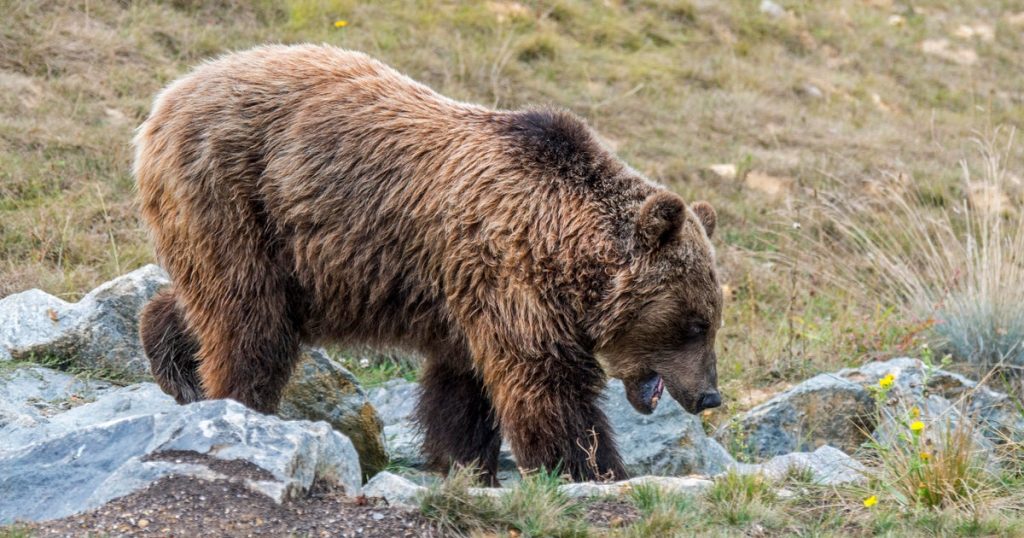An 81-year-old French hunter is facing trial for the killing of an endangered female bear that allegedly attacked him in the Pyrenees Mountains. The bear, known as Caramelles, was shot by Andre Rives while he was boar-hunting when the animal charged at him after he inadvertently got too close to her cubs. The incident has sparked considerable public debate, with varying opinions on the legality of Rives’ actions and the implications for wildlife management in the area.
| Article Subheadings |
|---|
| 1) Incident Overview and Details |
| 2) Legal Proceedings and Charges |
| 3) Community Reactions and Support |
| 4) Conservation and Environmental Impact |
| 5) Broader Context of Bear Interactions |
Incident Overview and Details
On November 20, 2021, Andre Rives was engaged in a boar-hunt in the mountainous region of the Pyrenees when he encountered a dire situation. As he moved through the dense woods, two bear cubs unexpectedly emerged before being closely followed by their mother, known as Caramelles. In an alarming turn of events, the mother bear charged at Rives after they made eye contact, dragging him several yards before he was able to shoot her. This encounter left Rives with significant injuries to his legs and a state of shock, leading to his evacuation via helicopter after a fellow hunter assisted in stemming his bleeding.
Legal Proceedings and Charges
The incident soon caught the attention of local law enforcement and environmental groups, as the bear species, particularly in the area of the Pyrenees, is classified as protected under environmental laws. As Rives faces trial, he is charged with “destroying a protected species.” The presiding judge, Sun Yung Lazare, has emphasized that the case revolves around the legality of Rives’ actions, rather than a broader debate about the status of bears in the region. The investigation revealed that Rives shot the bear approximately 1,300 feet beyond the boundaries of an authorized hunting area, complicating his defense claims of acting in self-defense amidst the bear’s sudden aggression.
Community Reactions and Support
The hunting community and local residents have rallied in support of Rives, viewing him as a victim of circumstance rather than an offender. Protests have been organized in the Ariege department, with local hunters advocating that Rives should not be held liable for his actions while under attack. Jean-Luc Fernandez, president of a local hunting federation, articulated this sentiment by stating that Rives acted out of necessity to defend his own life. Hunters have also criticized the marking of reserve boundaries, suggesting that inadequate signage may have contributed to the incident. Several hunters involved in the hunt alongside Rives are also facing prosecution for separate offenses related to the nature reserve, adding to the complexity of the situation.
Conservation and Environmental Impact
The death of Caramelles raises important discussions about wildlife conservation efforts in the Pyrenees, where bear populations had almost vanished before France initiated reintroduction programs in the 1990s. Animals rights activists argue that the reintroduction of bears is essential to maintaining ecological balance, while farmers express concerns over livestock safety. Julie Rover, a lawyer representing animal rights groups, emphasized the need for hunting regulations that do not compromise the environment, insisting that the loss of a breeding female bear signifies a serious threat to the species’ recovery. As of 2023, the bear population in the Pyrenees has been gradually increasing, with observations of 11 females giving birth this season—indicating a cautious success in efforts to revitalize the species.
Broader Context of Bear Interactions
The situation surrounding Rives and Caramelles is a microcosm of the broader tensions between humans and wildlife, particularly in areas where conservation efforts clash with traditional practices such as farming and hunting. Reports of bear-related incidents have been exacerbating in the region, with similar events unfolding in neighboring Italy, where bears have also been involved in conflicts with human activities. Conservationists continue to advocate for responsible coexistence strategies to avert such conflicts while promoting the sustainability of both wildlife and human endeavors in the mountains of Europe.
| No. | Key Points |
|---|---|
| 1 | An 81-year-old hunter is on trial for killing an endangered bear in the Pyrenees, raising debates about wildlife management. |
| 2 | Rives claims self-defense after being attacked by the bear, but the shooting occurred outside the authorized hunting area. |
| 3 | Local hunters and community supporters are advocating for Rives, claiming he was acting in defense during an unexpected bear encounter. |
| 4 | The death of the bear highlights the ongoing struggle between conservation efforts and traditional practices like hunting and livestock management. |
| 5 | The evolving bear population in the region represents a success in conservation but also presents challenges in coexistence with human communities. |
Summary
The trial of Andre Rives following the incident with the endangered bear Caramelles underscores the complexities surrounding wildlife conservation and human interactions in regions like the Pyrenees. As debates unfold regarding the legality of Rives’ actions and the efficacy of current wildlife management practices, the incident serves as a reminder of the fragility of ecosystems and the need for informed policies that balance both human and animal interests.
Frequently Asked Questions
Question: What prompted the trial of Andre Rives?
The trial was prompted by Rives’ killing of an endangered female bear, Caramelles, during a hunting trip in the Pyrenees, where he claims he acted in self-defense against an attacking animal.
Question: What are the implications of the case for wildlife conservation?
The implications include the potential reassessment of hunting practices, wildlife management strategies, and the need for clearer regulations and boundaries in protected areas to prevent similar incidents.
Question: How have local communities reacted to the events surrounding the trial?
Local communities, particularly hunters, have rallied behind Rives, arguing that he was defending his life under perilous circumstances and advocating for more effective signage and clarity regarding hunting regulations in wildlife reserves.


